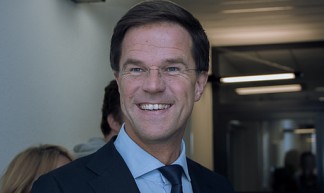Neoliberalisme redux
Neoliberalisme bestaat niet en is enkel een links scheldwoord, aldus de usual suspects.

(Oorspronkelijk verschenen bij sargasso.nl. Foto Berno van der Wal/cc/flickr)
Critici hebben in zoverre een punt dat ‘neoliberalisme’ vaak als containerbegrip wordt gebruikt om alles aan te duiden wat vuig en voos is. Zodoende kan het geen kwaad zo nu en dan de connectie tussen het begrip en de hedendaagse politieke realiteit te verduidelijken.
William Davis doet in deze blogpost een uiterst verhelderende poging:
In my book, I describe neoliberalism as the ‘disenchantment of politics by economics’. What’s important to realise is that this doesn’t necessarily mean replacing the state or democracy by the market. What it means is that processes traditionally left in the realm of politics must now be reconfigured in calculative, economically rational terms. Yes, you can carry on expressing demands publicly; but you must now do so in ways that makes the costs and benefits of your demand explicit. You are no less welcome to stage an opera, provide social care for the elderly or research ancient manuscripts, and these may indeed be matters for the state to support. Just as long as you can explain that in the language of economics. […]
Just as clothing designers came to realise during the 1980s that people want the label of expensive clothes on the outside, the injunction of neoliberal politics is to keep the price tag on at all times.
Deze volstrekt eenzijdige focus op economisch ‘nut’ verandert politiek van een inhoudelijke, ideologische discussie in een verhaal over ‘effectief’ (lees: economisch rendabel) besturen:
No decision-maker really wants to get their hands dirty deciding who is worthy of public money and who is not (or not if they can avoid it). The function of competition, from a neoliberal perspective, is to save centralised politicians or experts the trouble of becoming imbroiled in normative or democratic disputes. It also allows the politics of austerity to be somewhat concealed. Every theatre or every university department in the country is welcome to continue as they always have done – but the odds of them succeeding in this venture are being progressively, deliberately cut, from each year to the next.
Deze beperkte, zelfs bekrompen focus op economisch nut of rentabiliteit zorgt er overigens niet per se voor dat de overheid zich terugtrekt. Er dienen immers hele systemen te worden opgetuigd om de prijs van bepaalde politieke besluiten in de gaten te houden.
Centraal in het neoliberale systeem staat dan ook niet de vrije markt, maar de audit. Alles dient te worden gewogen en beoordeeld op kosten en rentabiliteit, want ‘the real underlying phobia […] is that someone might be getting “something for nothing” – and yet that is simply another way of describing a gift.’
In Nederland zien we dit goed bij uitkeringen. We zijn als de dood dat bijstandsontvangers niet zouden worden afgeknepen. Want dat is a) duur; en b) ze hebben het niet verdiend.
Dus wat doen we? Bijstandsuitkeringen worden enerzijds zo laag mogelijk gehouden, anderzijds moeten de ontvangers een naakte economische tegenprestatie leveren.
En verder maken we de regels zodanig gedetailleerd en streng dat je een fraudeur bent voordat je het weet.
En dit is slechts één voorbeeld: dankzij de centrale plaats van de audit in het moderne politieke denken neemt de regeldruk – ondanks alle liberale beloftes van Rutte c.s. – alleen maar toe.
En als economisch nut en rentabiliteit al bij voorbaat het doel van het landsbestuur zijn, dan hoeven politici uiteraard ook niet meer het debat aan te gaan, enkel besturen is genoeg.
Gezien onze huidige, vaststaande prioriteiten, hebben we daar eigenlijk ook helemaal geen politici meer voor nodig. ‘Laat ondernemers het land besturen,’ wordt al luidkeels geroepen in wat ooit een serieuze krant was.
En wat blijft er dan over voor de burger? Met de psychologische druk van (economische) onzekerheid wordt deze in het gareel gehouden:
However, when audit becomes married to rapidly shrinking budgets, and the continued use of planned competition to allocate those budgets, it shifts from a technique of discipline to one of control. The subject of audit shifts from seeking to meet a periodic target, to living with a constant sense of dread as to how things are currently going right now.
En ook dat heeft zijn nut. Ooit van een stakende flexwerker gehoord?
Maar toch is ‘neoliberalisme’ enkel een scheldwoord. Zou het?
————
Aanvulling globalinfo:
Onder het originele stuk op sargasso.nl vindt een discussie plaats
Voor een uitgebreide recensie van het rare boekje van de (neo)liberalen, zie de website van de Wiardi Beckman Stichting